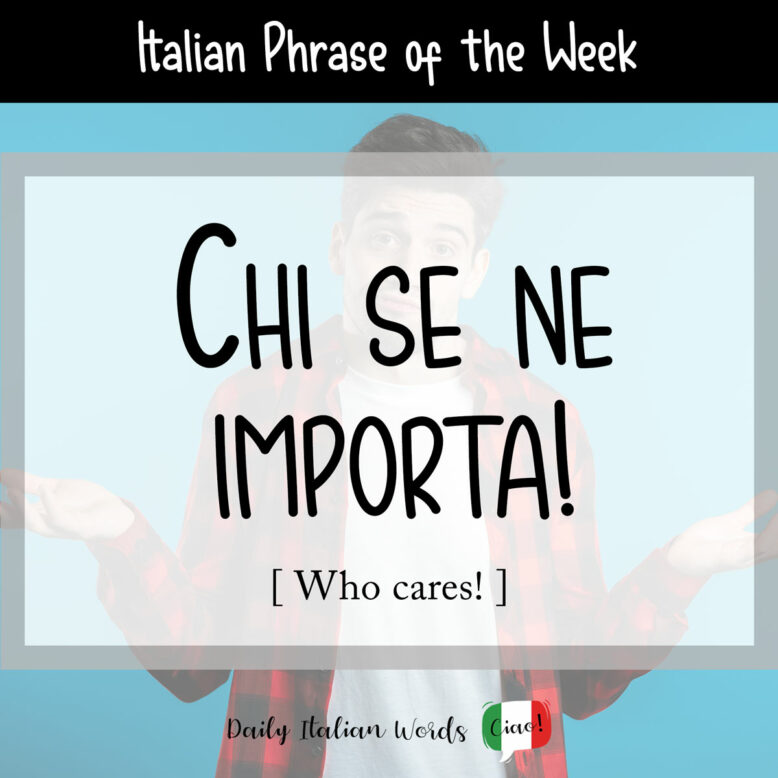One of the first phrases I remember desperately wanting to learn when I moved to Italy was Who cares? As it turns out, there are a few different ways to translate this expression as we’ll discover below.
The standard and most inoffensive way of translating this phrase is Chi se ne importa? which literally translates to something along the lines of who gives it importance.

Luca si sta sfogando di nuovo su Facebook… – Ma chi se ne importa!
Luca’s venting on Facebook again… – Oh, who cares!
A slightly ruder way of saying the same thing is Chi se ne frega. You’ll probably end up hearing this version more often in very informal situations amongst friends.
Ha detto che sono stupido. – E chi se ne frega di cosa dice. Non dargli retta!
He said that I’m stupid. – Who cares what he says. Don’t pay any attention to him!

You can also find it written as the single word chissenefrega but it is merely a written representation of the emphasised double “s” heard in the spoken language.
You can also drop frega and say chissene.
È uscito il film su Chiara Ferragni. – Ma chissene!
The film about Chiara Ferragni is out. – Who cares!
Two similar expressions are E allora? and E quindi? said with a raised intonation at the end of the sentence. They have a similar meaning to the expression And your point is…? in English.
Ci siamo lasciati per la terza volta… – E allora? Perché non accettate che tra di voi non funziona?
We’ve broken up for the third time… – And your point is? Why don’t you just accept that things aren’t working out between you two?
Heather Broster is a graduate with honours in linguistics from the University of Western Ontario. She is an aspiring polyglot, proficient in English and Italian, as well as Japanese, Welsh, and French to varying degrees of fluency. Originally from Toronto, Heather has resided in various countries, notably Italy for a period of six years. Her primary focus lies in the fields of language acquisition, education, and bilingual instruction.


